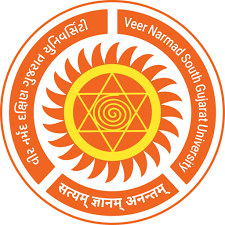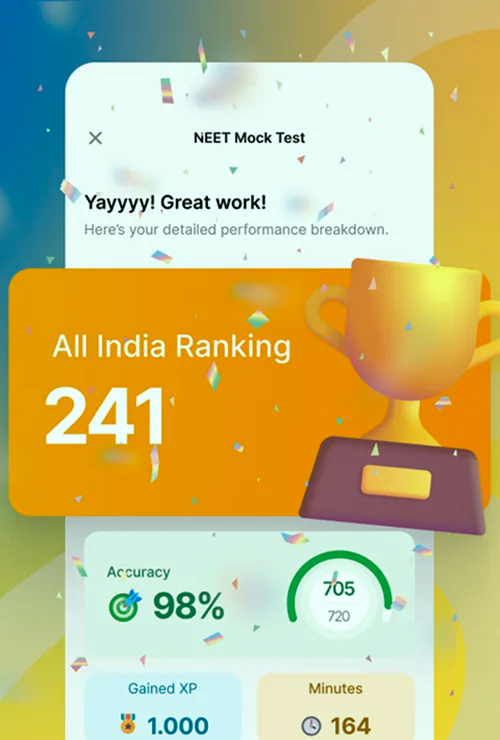General Information
Veer Narmad South Gujarat University, commonly known as VNSGU, is a large public State University. Established in 1965 by the Gujarat government (originally as South Gujarat University), it was renamed in 2004 to honor the great Gujarati poet and scholar, Veer Narmad.
Located in Surat, VNSGU serves as the primary teaching-cum-affiliating university for the South Gujarat region. It offers a wide range of postgraduate and research programs through its departments on its main campus. More significantly, it provides academic governance and awards degrees to a vast network of over 280 affiliated colleges (including government, grant-in-aid, and self-financed) spread across its jurisdiction.
Key Recognitions:
Established by a State Act and recognized by the University Grants Commission (UGC).
Accredited by the National Assessment and Accreditation Council (NAAC) with a 'B++' Grade.
Consistently ranked by NIRF (e.g., in the 101-150 band for Universities in 2024).
Holds necessary approvals from professional bodies like AICTE, NMC, DCI, BCI, PCI, INC, NCTE, and CoA for the specific programs offered either on its campus or through its affiliated colleges.
MCI Recogination
Recognized for 150 seats. Permitted for increase of seats from 150 to 200 under EWS quota (103rd constitution amendment) for 2019-20, Permitted for increase of seats from 200 to 250 under EWS quota under (103rd constitution amendment) for 2022-23.
Permitted (1st renewal) and 2nd batch for the Academic Year 2023 - 2024. Annual renewal permission granted for 250 MBBS seats for AY 2024-25.
Campus Facilities
The Campus: A Sprawling Urban Oasis
VNSGU's main campus is a significant landmark in Surat.
Location: Situated in the Vesu area of Surat, Gujarat.
Campus Size & Vibe: The campus is spread over a large, green area (often cited as 210-810 acres), offering a spacious, park-like academic environment within the city.
Infrastructure & Facilities:
Academic Departments: Dedicated buildings house its various postgraduate teaching departments (e.g., Aquatic Biology, Business Management, Computer Science, Law, Rural Studies).
Central Library: A large library complex (approx. 28,000 sq. ft.) with a vast collection (2,00,000+ books), theses (2,800+), and extensive digital access (5,200+ e-journals).
Laboratories: Well-equipped labs for various science and technology departments, including computer labs, Plant Tissue Culture labs, and a Microscopy lab.
Learning Spaces: Modern classrooms, seminar halls, and a large air-conditioned convention hall (1200+ seating capacity).
Residential Life: Extensive and separate hostel facilities for boys (6 hostels, ~400+ capacity) and girls (6 hostels, ~500+ capacity).
Amenities: Health Centre (with ECG, ambulance), sports complex (including an indoor stadium, hockey ground with Astro-Turf, cricket ground, synthetic athletic track), gymnasium, bank (Union Bank of India) & ATM, canteens, and a post office (check status).
Hospital & Medical Facilities
Leading tertiary care hospital attached to the institution
Healthcare Connection: Affiliating Role for Medical/Dental
It's important to understand VNSGU's role in health education; it is primarily affiliating.
No Constituent Medical College: VNSGU does not have its own constituent Medical College offering the MBBS degree, nor does it operate its own large general teaching hospital for this purpose.
Affiliation Role: The university acts as the affiliating university for health science colleges within its jurisdiction. This includes:
Medical: Government Medical College, Surat (GMC Surat), and Surat Municipal Institute of Medical Education and Research (SMIMER), as well as private medical colleges in the region (e.g., GMERS Medical Colleges in Valsad, Rajpipla).
Dental: Government Dental College & Hospital, Surat.
AYUSH/Nursing/Physiotherapy: Numerous government and private colleges offering BAMS, BHMS, B.Sc Nursing, BPT, and other paramedical courses are affiliated with VNSGU.
Health-Related Programs (On Campus): The university's own campus offers strong programs in Aquatic Biology, Bioscience, Microbiology, and M.Sc (Medical Laboratory Technology), but not direct clinical (MBBS/BDS) training.
Health Centre: Provides basic medical support to the campus community.
Fee Structure
State University Affordability
Fee Structure: State University Affordability
Being a state university, VNSGU's fees for its regular, government-aided programs on campus are extremely affordable. Self-financed courses (like MBA on campus, or courses in private affiliated colleges) have higher fees.
City Details
Hostel & Mess
Campus Living: Highly Affordable Hostel Accommodation
VNSGU provides residential facilities, primarily for students enrolled in its on-campus (mostly PG) programs.
Availability: Yes, the university has separate hostel blocks (6 for boys, 6 for girls) on its main campus, with a combined capacity of ~900-1000 students.
Facilities: Hostels offer basic furnished accommodation (single, double, triple sharing), common rooms, dining halls (messes), 24/7 security, warden supervision, and essential amenities like water coolers.
Mess System: Each hostel typically operates its own mess, often run on a dividing system or fixed rate.
Cost: As a state university, the hostel and mess fees are extremely economical. Expect annual hostel fees (rent, electricity, etc.) to be very low (e.g., ~₹5,000 - ₹8,000 per year). Mess charges are separate and paid monthly based on actual expenses (likely ~₹2,500 - ₹3,500 per month).
Miscellaneous
Admissions & Career Pathways: State Portals (GCAS, ACPC) & Regional Impact
Getting Admitted:
UG (BA/BSc/BCom etc. in Affiliated Colleges): Admission to most general UG courses in colleges affiliated with VNSGU is managed through the Gujarat Common Admission Services (GCAS) portal, a centralized, merit-based process based on Class 12 marks.
PG (MA/MSc/MCom on Campus): Admission to most on-campus postgraduate programs is also typically managed via the GCAS portal, based on merit in the qualifying Bachelor's degree.
MBBS / BDS / AYUSH / BPT / B.Sc Nursing (Affiliated): Admission is strictly based on rank in NEET-UG. Seat allotment for all quotas (Govt, Mgmt, NRI) is handled by the Admission Committee for Professional Undergraduate Medical Educational Courses (ACPUGMEC), Gujarat.
B.Tech (Affiliated): Admission to affiliated engineering colleges is based on JEE (Main) scores and/or GUJCET (Gujarat Common Entrance Test), followed by ACPC (Admission Committee for Professional Courses) counselling.
MBA (On Campus): Admission is based on CMAT scores, followed by centralized counselling (ACPC) or university-level selection.
Always check the official VNSGU admission notifications and the relevant Gujarat state admission portals (GCAS, ACPC, ACPUGMEC).
Career Support (Placements):
Focus: VNSGU has a placement cell that facilitates opportunities. For the vast majority of graduates from its affiliated arts, science, and commerce colleges, career paths often involve state government jobs (GPSC, Banking), teaching positions (B.Ed/NET/SET), local entrepreneurship (Surat is a major commercial hub), or further studies (like CA/CS for commerce grads).
Campus Placements: Direct campus placements are more relevant for the on-campus MBA, MHRD, MCA, M.Sc (IT) programs, and professional courses in affiliated colleges (Engineering, Pharmacy, Nursing). Recruiters often include local/regional companies from the Surat industrial/diamond/textile belt, banks (ICICI, HDFC, Kotak), IT service firms (TCS, Herald Logic, NJ Technologies), and healthcare providers (for affiliated nursing/pharma grads).
Outcomes: Placement success varies. The median package for PG (2-year) programs (like MBA/MSc) was reported around ₹2.20 LPA - ₹4.39 LPA in NIRF 2024. The university plays a critical role in providing a skilled workforce for the dynamic South Gujarat region.
Information for NRI / Foreign Nationals
Provisions for NRI/Foreign Nationals exist, primarily through affiliated private colleges and specific university policies.
Collage Images Gallery
Facilities & Campus Life
Well-equipped Library
Experienced Faculty
Computer Lab
Sports Activities
Heritage Campus
Frequently Asked Questions
Why Consult With Us?
- 15+ years of experience in medical education counseling
- 5000+ students successfully guided
- 50+ partner universities worldwide
- Free initial consultation with no obligation














